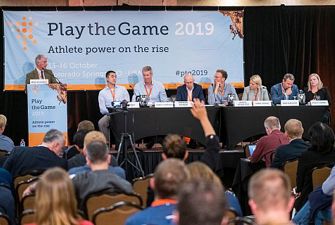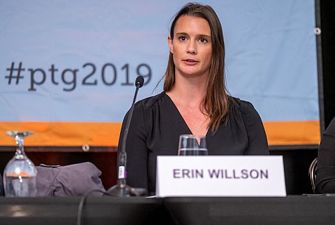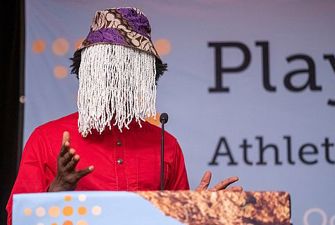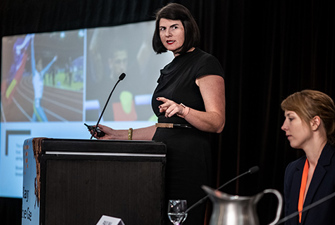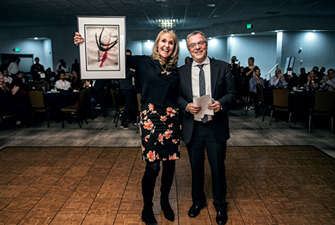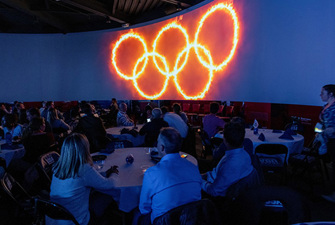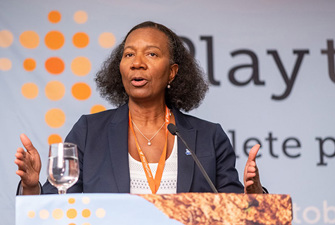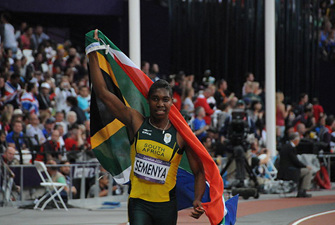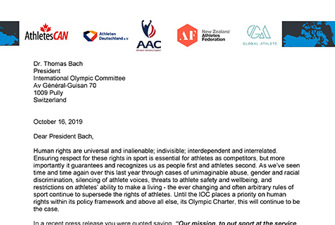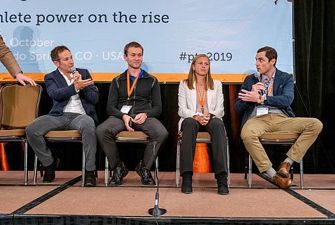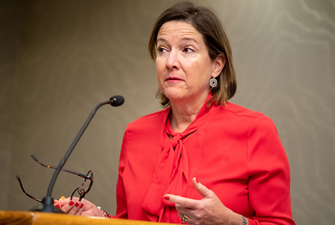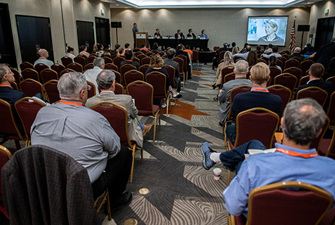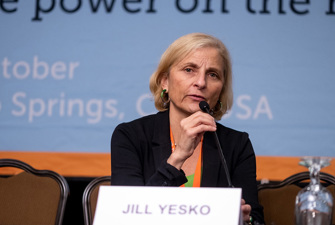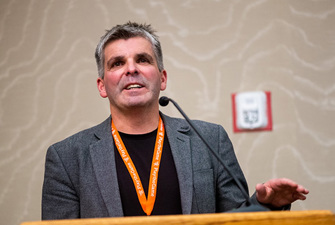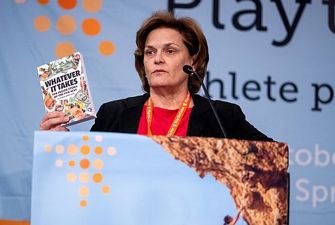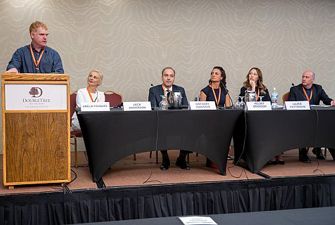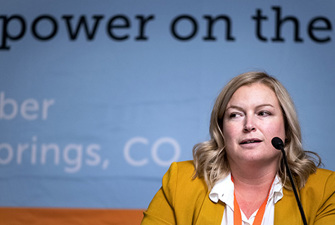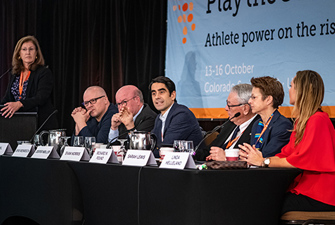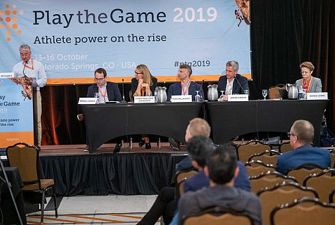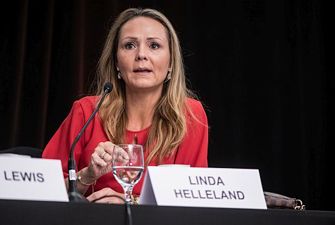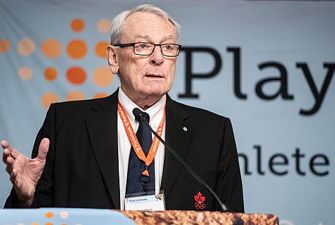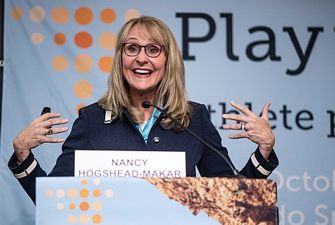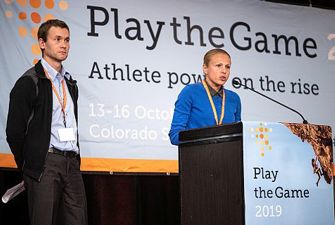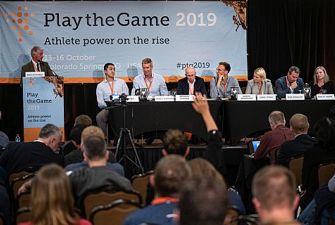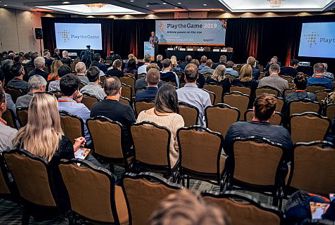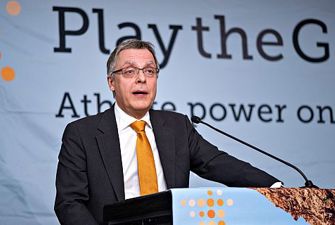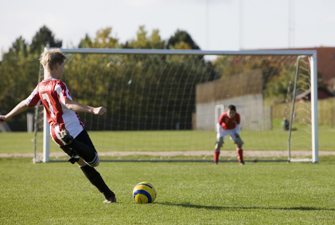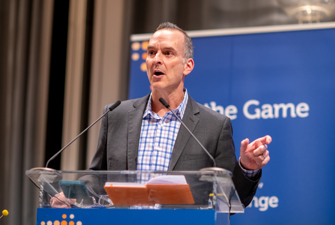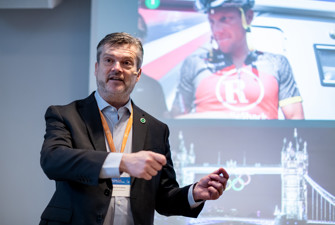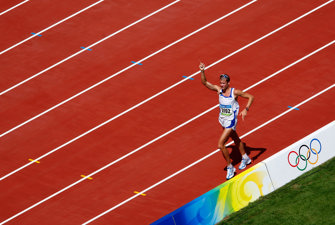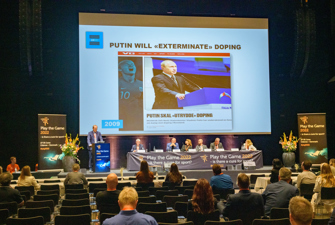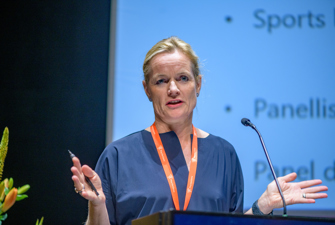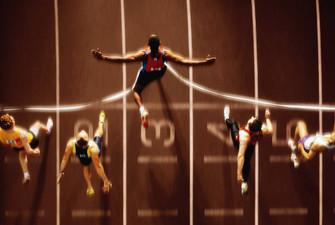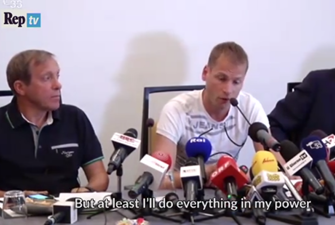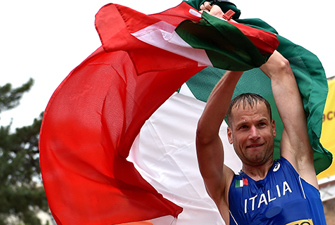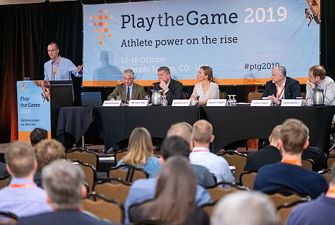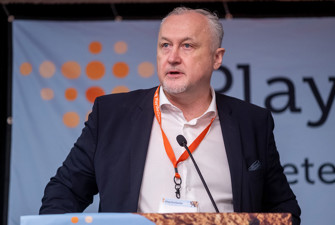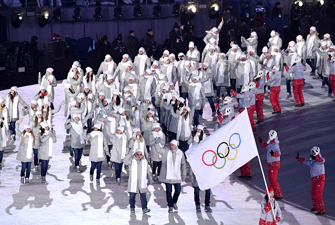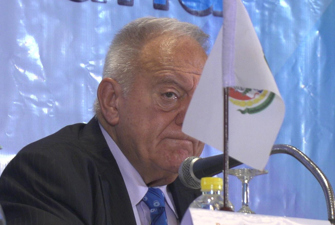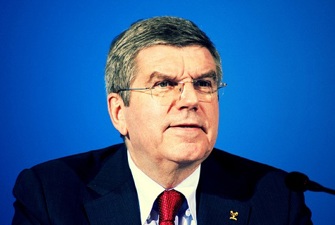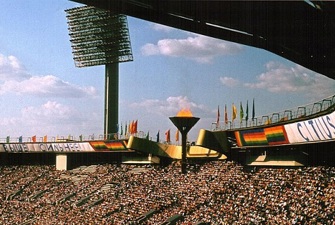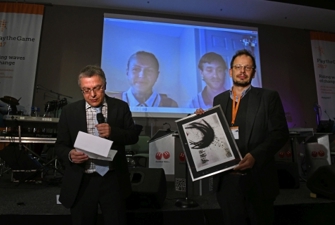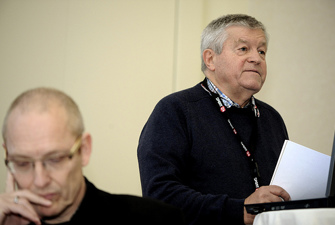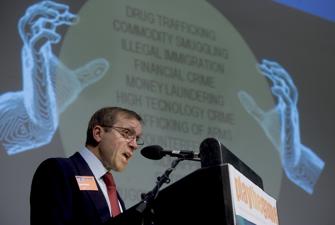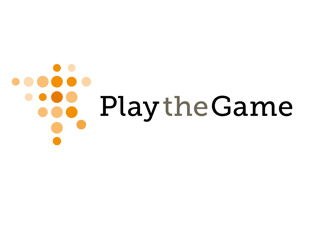The great doping battle
The two directors of the national anti-doping agencies in Russia and the U.S. discussed the future of anti-doping with the chairman of iNADO and two athlete and media representatives at Play the Game 2019 - but without the presence of WADA.
In the turbulent world of anti-doping, there is a thin line between being a hero and a traitor. Just ask Yuriy Ganus and Travis Tygart.
As the director of the Russian Anti-Doping Agency (RUSADA), Yuriy Ganus has earned an international reputation of being a Russian anti-doping hero while many sports people inside Russia consider him to be a rebel and a traitor thanks to his outspoken critique of the country’s inability to improve its sports administration after the exposure of the Russian state doping scandal five years ago.
And at the U.S. Anti-Doping Agency (USADA), director Travis Tygart has had similar experiences after his investigation of major doping cases involving American sports heroes like Team U.S. Postal’s seven times Tour de France winner Lance Armstrong and the Nike-sponsored athletics coach Alberto Salazar - just to mention two of the cases that has made Tygart a rock star among national anti-doping directors.
“I know what Yuriy Ganus is going through in his country. I too have been accused of being an ‘Anti-American’ and ‘a traitor’,” Tygart told Play the Game during a session at its conference in Colorado Springs in which he and his Russian colleague were invited to speak about ‘What’s next for WADA?’
In many media reports, the future of the world’s anti-doping system has been described as uncertain ever since September last year when athletes and the Institute of National Anti-Doping Organisations (iNADO) critisised the World Anti-Doping Agency (WADA) for its handling of the Russian state doping case and kick started the worst crisis in international anti-doping since the creation of WADA in 1999.
A crisis, that blew up again last month when WADA accused the Russians of tampering with the evidence in the state doping case and gave RUSADA and the Russian sports minister three weeks to deliver an explanation of the tampering which is now being analysed by WADA experts before the agency decides whether RUSADA after three years out in the cold before last year’s reinstalling once again should be sanctioned.
Important players
But even though the session was a discussion of WADA’s future between some of the most important players in the world of anti-doping, the agency did not for the first in ten years send a senior executive to take part in Play the Game.
“Since WADA is not present here at Play the Game, we have a golden opportunity to say and suggest whatever we want without being corrected or argued against. I am of course joking, because I would have liked to have a WADA representative present here. Actually, I find it highly unfortunate that WADA did not prioritise their presence here at this important conference,” iNADO’s chairman Michael Ask, who is also the director of Anti-Doping Denmark, said and noted:
“WADA is turning 20 this year. At that age you have grown up, gained some experience and learned some lessons, but you still have a lot to learn, and in many aspects, I think this assessment fits into where WADA is today”.
To Michael Ask, for too many years the system to monitor and assess the compliance of an anti-doping organisation (ADO) has been too random and non-transparent. By the implementation of the International Standard for Code Compliance by Signatories (ISCCS) a huge step forward has been taken in creating a system that tries to align the performance by all ADO’s – whether they are NADO’s or ADO’s connected to the IF’s.
“Is the system perfect? By no means. In my opinion it focuses too much on whether or not the ADO lives up to all kinds of technical standards. Even for well-resourced NADO’s like my own, it is impossible at all times to live up to all these standards and regulations,” he said.
“Now, I think in many ways it is a natural development for an organisation like WADA to become a paper tiger. WADA’s main task is to regulate and control, and as new ways of cheating re discovered, the answer is to add more rules and regulations. But the paramount question is whether or not this has gotten a little out of hand. It is not unusual that the papers distributed up to WADA FB or ExCo meetings, consists of more than 1000 pages. It is impossible for anyone to comprehend the consequences of all these proposals and suggestions.”
According to Michael Ask, it is impossible to implement a lot of those rules and regulations in the less developed part of the world.
“We have a tendency to see the world through the lenses of the developed world, but the majority of the problems lies in the third world and can not necessarily be solved with sophisticated solutions. We have big parts of continents like South America, Asia and Africa, where we need to enhance the level of the anti-doping work dramatically, if we one day want to have a true level playing field for all athletes, and we should concentrate on solving these matters first and foremost.”
Expand the stakeholder group
The iNADO chairman also pointed out, that WADA in recent years has developed an Investigation and Intelligence department, who works with informant and whistleblowers, but that this development has not been invented by WADA.
“It is more a reaction to revelations done by investigative journalists like Hajo Seppelt, and it would have been great if WADA had been more proactive here,” Ask said while also pointing out that he would like to see a much more value based and transparent WADA that embraces its stakeholders, including the athletes, and try to expand the stakeholder group to other groups like sponsors and media.
“The NADO community is responsible for approximately 80 percent of all the anti-doping work that takes place in the world. iNADO, representing 67 of these organisations, are ready to work closely together with WADA in order to help raising the water level, so we can get all boats to float. But it must be a constructive and binding corporation that goes both ways.”
Canada’s most decorated cross-country ski racer Beckie Scott, now Chair of WADA’s Athlete Committee, gave a very powerful insight about her experience of competing against doped athletes, and explained how many athletes have lost trust in WADA because of its handling of the Russian state doping case. To her, athletes now need to be an equal part in WADA’s decision-making.
“No one has more to lose than the athletes, if sport becomes just another business,” she said before leaving the microphone to Travis Tygart.
The Copenhagen Declaration
Like Michael Ask, the USADA’s director noted that it was the first time in almost 10 years that WADA hasn’t taken part in an anti-doping discussion at a Play the Game conference. But to Tygart, there is a very simple answer to the question ‘What’s next for WADA?’:
“WADA just need to follow the recommendations in The Copenhagen Declaration,” he said with a reference to a declaration signed by 17 NADO’s back in 2016.
The declaration proposed a series of anti-doping reforms. While recognising WADA’s responsibility for ‘a significant advancement in the fight for clean sport since 1999’ and rejecting ‘any efforts to weaken its mandate, autonomy or operations’, the NADO’s supported ‘a strong WADA that adheres to the principles of independence, separations of powers, and best governance practices’.
In order to secure the independency of WADA, The Copenhagen Declaration stated that ‘the anti-doping system should be independent of sports organisations’ and that ‘officers, directors, employees and all decision-makers of anti-doping organisations should not simultaneously hold a board or officer position or other policy-making position in any IF or major event organisation’.
“You can’t sit in a sports organisation and in WADA,” Tygart said before thanking Yuri Ganus for RUSADA’s help in the investigation of several doping cases by saying that it is other people and institutions in Russia he is nervous about.
The bible battle
During the conference, many international media representatives have speculated in why Ganus is still the director of RUSADA after his heavy critique of Russia’s sports administration.
But instead of answering the question directly, the Russian used his time at the session to explain why the media and the international anti-doping community should believe him when he says that RUSADA under his leadership has developed into a trustworthy and independent NADO.
“In the past, until 2016, RUSADA was a non-independent anti-doping agency that was used as a service organisation to the Russian sports organisations. Instead of fighting for pure sport, it intensified the doping poisoning of Russia’s sports environment. Now, Russian sports environment faces a choice: pure sport and clean competition or doping deformity. It is a ‘Bible Battle’: Heaven vs. Hell,” he said.
“Shadow forces among the decision-makers are playing a huge role in the Russian sports environment. The Russian sports area is unfortunately not in the proper priority of the highest level authorities. There is a low control of the tools to achieve goals in sport by the supreme authority. This provided an opportunity for the shadow forces to choose tools and approaches that go beyond common values and principles.”
Ganus also said, that a possible motivation behind the tampering with the data extracted from the Moscow Lab Data Base could be a desire to protect the reputations and positions of former star athletes who now ‘possible have power/authority roles’ in Russia’s sports and government organisations.
“But the new RUSADA has never had, has not and will not have any access to the electronic databases at the Moscow Lab. The new RUSADA works with at least 13 anti-doping laboratories of the world accredited by WADA, with 5 of them in active mode,” he said while pointing out that the new RUSADA is on an ‘ice-breaker’ mission fighting for fair sport.
Hajo Seppelt, the investigative journalist from ARD in Germany that exposed the Russian state doping case five years ago, said that the Russian authorities have never admitted anything and that high ranked officials in WADA mostly has tried to downplay the problem even though the Russian state doping system can be compared to the doping regimes of the former Soviet Union and East Germany.
“We have contributed with our journalism. Now it is time for other people to take over”.
